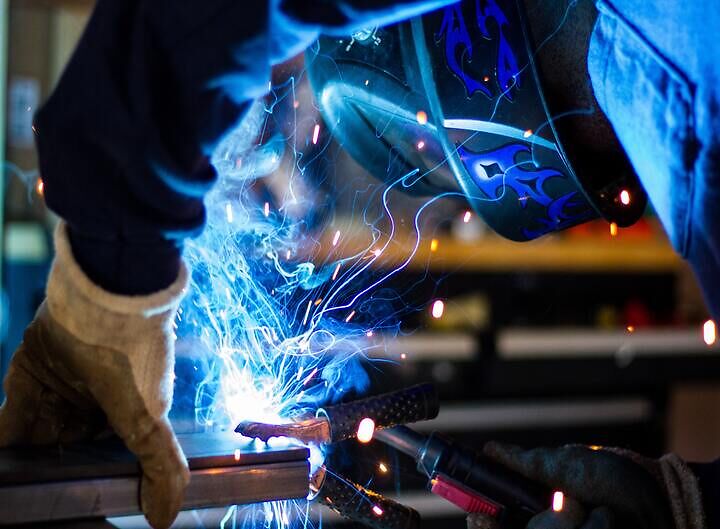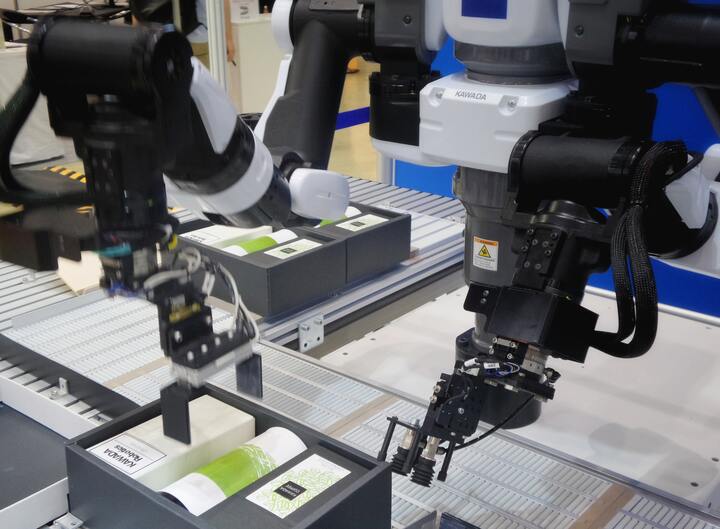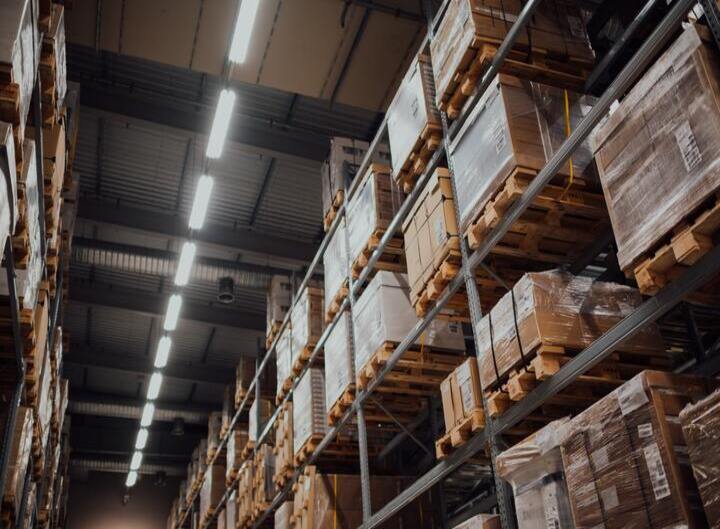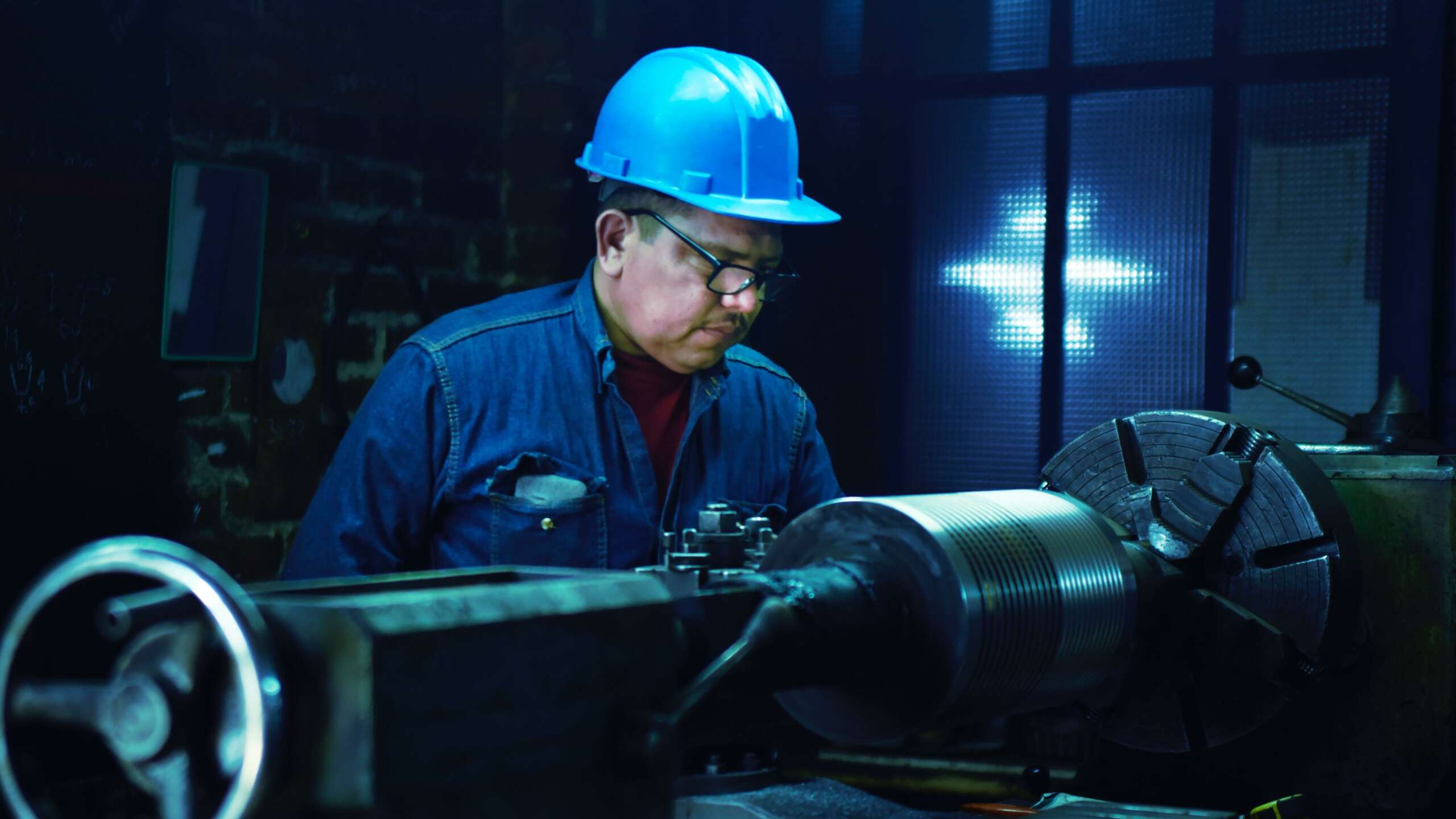The manufacturing industry is growing rapidly. The industry market size measured by revenue reached $ 5.6 trillion in 2021 and is expected to grow further by 5.9%.
One of the reasons for such expansion is the use of robotics and artificial intelligence that has already caused the change to be called the next industrial revolution.
As we know, Artificial Intelligence uses data and computers to perform tasks that would normally require human intelligence and participation. But how exactly can the manufacturing industry benefit from such technology?
Predictive maintenance

Modern warehouses are equipped with various sensors that record data from different pieces of equipment and operations. This type of real-time and historical data is what predictive maintenance solutions use to track and predict the health, condition and performance of assets.
By taking into consideration details such as temperature, machine operating speed, lubrication, etc., predictive maintenance provides warnings and alerts about possible future machine failures.
With the help of similar solutions, warehouses can have constant analysis and can access benefits such as:
- Improved equipment uptime by 20% percent;
- Reduced maintenance costs by 18 to 25%;
- Increased productivity due to minimized likelihood of unscheduled equipment downtime.
Intelligent Process Automation (IPA)

One of the most important applications of automation is manufacturing. However, this process became even more important when combined with artificial intelligence. The fusion of automation and AI is known as Intelligent Process Automation (IPA).
What makes it so different from standard robotic automation? It is the ability of AI systems to find patterns in data, learn from data sets, and perform environment-based tasks without the need for human involvement.
For manufacturers, this means:
- 24/7 production;
- Increased accuracy;
- Decreased operational costs;
- Better scalability.
Quality assurance
The production and guarantee of high-quality products are vital for manufacturers and for a positive image of their brands. To that end, quality assurance procedures are implemented to ensure that the final product meets the desired quality criteria.
Because AI use cases are so versatile, manufacturers have started using it to improve their QA operations. The reason for this is that manufacturers achieve quality inspections faster, with higher accuracy and at lower costs with the help of AI.
Manufacturers can teach AI systems what kind of product features are considered acceptable (curves, colors, edges, etc.). Subsequently, with the help of computer vision technology, the machines inspect each product and independently decide whether the product meets the predefined criteria.
Generative design
Not only can AI systems help with the manufacturing process, but they can also be helpful during the product design process. Designers can tell the artificial intelligence system the goals of product design, smart algorithms can then test all possible variations with regards to existing manufacturing constraints and ultimately find the most optimal solution. This helps companies develop and find design solutions that would never cross the human mind.
Logistics optimization

For manufacturers, the optimal space allocation within the warehouse is just as important as the other things mentioned above. Since artificial intelligence systems can capture patterns and data from manufacturers, they can suggest the layout management by taking into account the capacity of the space, identify the most used materials and products and give recommendations on how and where to place them, as well as suggest the suitable staff quantity for smooth operation.
Conclusion
With the increase in the use of smart devices and sensors, the manufacturing sector is collecting a significant amount of data and it is a perfect use case for the application of AI.
Using big data, artificial intelligence systems can identify trends and patterns that then help manufacturers with process optimization, inventory control, maintenance predictions, and many more.
Despite the many benefits of AI, Industry 4.0 is still in its early stages and we have yet to see many more innovative applications of AI in the manufacturing sector.
Do you want to boost your projects with innovative AI solutions? Contact our team for a free consultation and we will make sure to get back to you as soon as possible.








